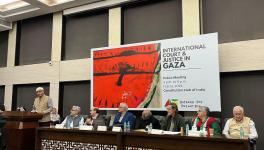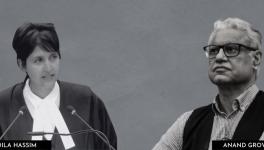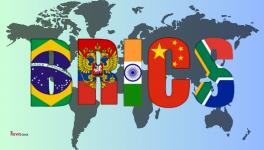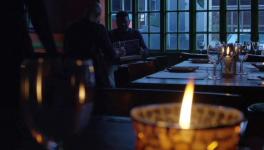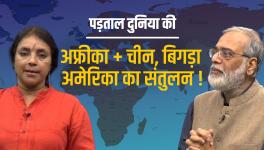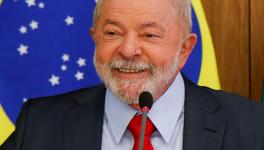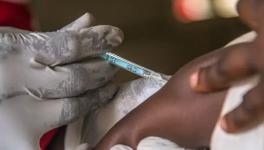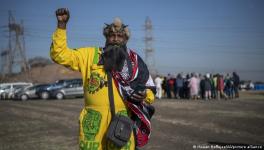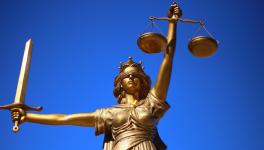On Nelson Mandela International Day, Recalling Mandela’s Life and Legacy
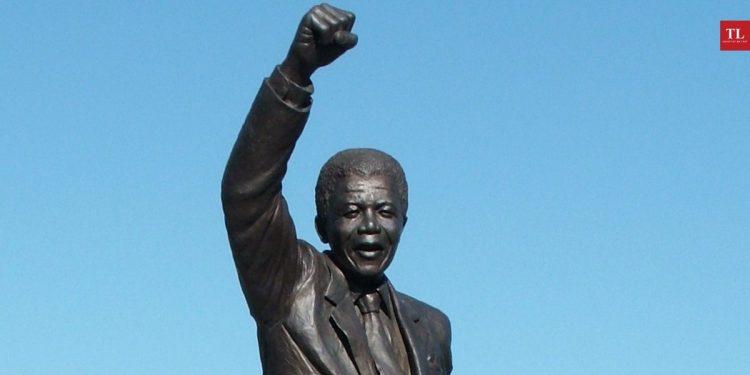
Nelson Mandela was born on July 18 in 1918 in the Mvezo village in the present-day Eastern Cape province in South Africa. Mandela was often addressed as ‘Madiba’, his clan name. In his life full of heroic struggle against the apartheid regime, twenty-seven years were spent in prison, making him one of the longest-serving political prisoners
In his autobiography Long Walk to Freedom, Mandela details the difficulties within his mind and within his political party, the African National Congress (ANC) in adopting the Gandhian model of non-violence as a practical necessity rather than as an inviolable principle.
“In India, Gandhi had been dealing with a foreign power that ultimately was more realistic and farsighted. That was not the case with the Afrikaners in South Africa”.
To a United States delegation, he compared the position of American civil rights activist Martin Luther King Jr. with himself, in these words:
“United States was a democracy with constitutional guarantees of equal rights that protected nonviolent protest (though there was still prejudice against blacks); South Africa was a police state with a constitution that enshrined inequality and an army that responded to”.
Civil activism and imprisonment
At first, Mandela and his fellow members of the ANC used nonviolent tactics like strikes and demonstrations to protest apartheid. In 1952, Mandela helped escalate the struggle as a leader of the Defiance Campaign against Unjust Laws, which encouraged participants to actively violate laws.
He was acquitted of treason in 1961 but was again charged for ‘illegally leaving the country’ in 1962 and was convicted. In his first court statement in 1962, Mandela told the following to the judge:
“I consider myself neither legally nor morally bound to obey laws made by a parliament in which I have no representation”.
He was put on trial again in 1963 for sabotage, treason, and violent conspiracy.
In the Rivonia Trial, he concluded his now-famous Statement of Defence with the following words:
“During my lifetime I have dedicated myself to this struggle of the African people. I have fought against white domination, and I have fought against black domination. I have cherished the ideal of a democratic and free society in which all persons live together in harmony and with equal opportunities. It is an ideal that I hope to live for and to achieve. But if needs be, it is an ideal for which I am prepared to die.”
In 1964, he was sentenced to life in prison.
While in prison, he wrote hundreds of letters to his family, friends, prison authorities, government ministers, and even to the families of martyred freedom fighters. In one of these letters that best defines his legacy, he wrote to the Commissioner of Prisons in 1976:
“Even when the clash between you and me has taken the most extreme form, I should like us to fight over principles and ideas and without personal hatred so that at the end of the battle, whatever the results might be, I can proudly shake hands with you because I felt I have fought an upright and worthy opponent who has observed the whole code of honour and decency”.
In February 1985, Mandela rejected the South African government’s offer of release from prison on the condition that he “unconditionally rejected violence as a political weapon”. His full response was read out by his daughter Zinzi, to a cheering crowd:
“I cherish my own freedom dearly, but I care even more for your freedom. … I am not less life-loving than you are. But I cannot sell my birth right, nor am I prepared to sell the birthright of the people to be free”.
Free at last
In 1990, in response to international pressure and the threat of civil war, South Africa’s then-president, F.W. de Klerk, pledged to end apartheid and released Mandela from prison after 27 years.
Mandela subsequently led the ANC in its negotiations with the then South African government for an end to apartheid and the establishment of a multiracial government.
India conferred its highest civilian honour, the ‘Bharat Ratna’, upon Mandela in 1990. Dr B.R. Ambedkar, the tallest Dalit leader in India and the architect of the Indian Constitution, was also conferred the same award that year.
In 1993, Mandela and de Klerk were jointly awarded the Nobel Peace Prize.
On May 10, 1994, Mandela was sworn in as the first Black president of South Africa, and its first president under its new interim Constitution elected in a fully representative democratic election. In his inaugural speech, President Mandela declared:
“The time for the healing of the wounds has come. … We have, at last, achieved our political emancipation. We pledge ourselves to liberate all our people from the continuing bondage of poverty, deprivation, suffering, gender and other discrimination”.
As South African President
As president, Mandela established the ‘Truth and Reconciliation Commission’ to investigate human rights violations under apartheid. He introduced several measures to improve the living standards of South Africa’s Black population. In 1996, he presided over the enactment of a new South African constitution.
Mandela retired from politics in June 1999 and did not contest for a second presidential term. After retirement, Mandela continued to advocate for human rights, working to end poverty and raise awareness of HIV/AIDS and peace until 2004, when old age and his declining health forced him to retire from public life.
He passed away aged 95 years in December 2013.
“[T]o be free is not merely to cast off one’s chains, but to live in a way that respects and enhances the freedom of others,” he once reflected in his final years.
Enduring legacy in a world rife with humanitarian conflict
Recognizing Mandela’s values and his contribution to the service of humanity in the fields of conflict resolution, world peace, race relations and promotion of democracy throughout the world, the United Nations General Assembly designated July 18, as ‘Nelson Mandela International Day’ to be observed each year, beginning 2010.
As the world celebrates Nelson Mandela International Day today, it would serve us well to ruminate on Mandela’s legacy.
At a time of unprecedented strife and atrocities on economic, racial, communal and ethnic lines in not just his native South Africabut across so many parts of the world (China, Myanmar, Yemen, Afghanistan, Ethiopia, Syria, Libya, Somalia, Democratic Republic of Congo, Iraq, Nigeria, South Sudan, Mali, Palestine, and much of North Africa, to name just a few), it would be worthwhile to recall the values that Mandela dedicated his entire life to, and reflect on how to shape the world in his vision.
In India, religion and caste-based discrimination is on the rise. Offences under the Scheduled Castes and Scheduled Tribes (Prevention of Atrocities) Act, 1989 against Scheduled Castes and Scheduled Tribes have increased by 281.75% and 575.3% respectively between 2009 and 2018. The average conviction rate in the same period for such offences was only 25.2% in the case of Dalits and 22.8% in the case of Adivasis.
Hate crimes against Muslims have jumped since 2014 too, with over 90% of religious hate crimes recorded between 2009 and 2018 in India recorded since the National Democratic Alliance government came to power in 2014.
English theoretical physicist and cosmologist Stephen Hawking, one of the greatest minds of our times, was once asked, “Who is your favourite non-scientist?” His answer? “Nelson Mandela”.
The entirety of all humans belongs to only one species. All discriminatory practises, strife and violence on account of man-made distinctions such as race, ethnicity, caste, religion and political ideology must be fought if Nelson Mandela International Day is to be celebrated meaningfully.
(Prashant Padmanabhan is an advocate in the Supreme Court. The views expressed are personal.)
Get the latest reports & analysis with people's perspective on Protests, movements & deep analytical videos, discussions of the current affairs in your Telegram app. Subscribe to NewsClick's Telegram channel & get Real-Time updates on stories, as they get published on our website.









